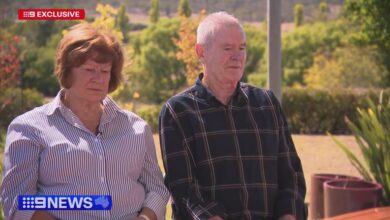Helping survivors along recovery road
A program for nurses to teach self-care skills to cancer patients has shown promising results. Linda Belardi reports.
The Queensland University of Technology has trialled a pilot program to boost the role of nurses in the post-treatment care of cancer patients.
Professor Patsy Yates from the university's School of Nursing and Midwifery, said nurses were well placed to support the ongoing physical and psychological needs of cancer survivors.
The two-year project found that patients who received a one-off consultation with a cancer nurse at the end of their treatment reported feeling more confident to manage the long-term side effects of treatment.
The nurse-led intervention involved the development of an end-of-treatment care plan and ongoing self-care strategies.
Patients reported a lower need for ongoing information and emotional support. Patients said they were less concerned about reducing stress in their lives, adjusting to changes in their bodies and being able to move on with their life compared with the control group.
Yates said the program had achieved its goal of helping patients to feel more in control of their health and wellbeing after cancer treatment. "We know one of the big issues for patients is the ongoing concern and anxiety about their health and staying well," Yates told Nursing Review.
The program incorporated strategies to manage common concerns such as fatigue, weight management and menopausal symptoms for women following breast cancer.
The pilot targeted 35 patients at Toowoomba Hospital and Princess Alexandra Hospital in Brisbane who had bowel or breast cancer and was delivered by seven nurses in their role as cancer care co-ordinators.
"The focus of the cancer care co-ordinator role is around facilitating the transition of patients through their cancer journey," Yates said. "As a key transition point for patients, the end of treatment going into post-treatment phase, nurses are well placed to take a lead in assisting patients to plan their post-treatment care."
Yates said while patients received a lot of support from nurses and doctors during their cancer treatment, they needed to learn how to self-manage when regular contact hours with health professionals were reduced.
She said a focus on self-management skills was a unique feature of the program. "What hasn't been available in the past are programs which recognise that being able to reduce patients' fears about their health and wellbeing require the development of self-management skills," she said.
The program also focused on engaging family and friends as social supports in the recovery process.
"We also emphasised the importance of peer and family support in helping patients to implement these self-management behaviours," Yates said of the research project, which was funded by the Department of Health and Ageing.
Yates said the training program was rated very highly by the participating nurses because it addressed a gap in the care of cancer patients. "The nurses really appreciated the opportunity to have a structured approach to end-of-treatment planning but the challenge now is how do we continue to fit this into a busy clinical day."
For it to become an ongoing part of cancer nursing practice it had to be embedded in the care co-ordinator's role, she said.
"The key things which we think are integral to it being systematised are about having the documentation, the accountabilities and the training for nurses."
Yates is now collaborating with interstate partners to trial the program across different settings and models of care. The QUT team is also in the process of trying to embed the training program into existing online learning programs for nurses, including the Australian National Cancer Nursing Education Project funded by Cancer Australia.
There is also the potential for the care plans to be used by doctors. As part of the program, the patients' GPs were also sent copies of the end-of-treatment care plans. A small number of GPs who responded to a request for feedback, said it helped them understand the ongoing support needs of patients. The GPs also said that they would use the care plans if it became a routine part of the healthcare of cancer patients in the future.
"Cancer is a chronic disease and patients live with the health concerns for a long time following cancer treatment," Yates said.
"An approach to care which really understands cancer from the patient's perspective and the nurse's role in developing self-management skills is critical in our treatment of cancer in the future."
The research project's findings are to be presented at an upcoming national conference of the Clinical Oncological Society Australia.
Email: [email protected]





